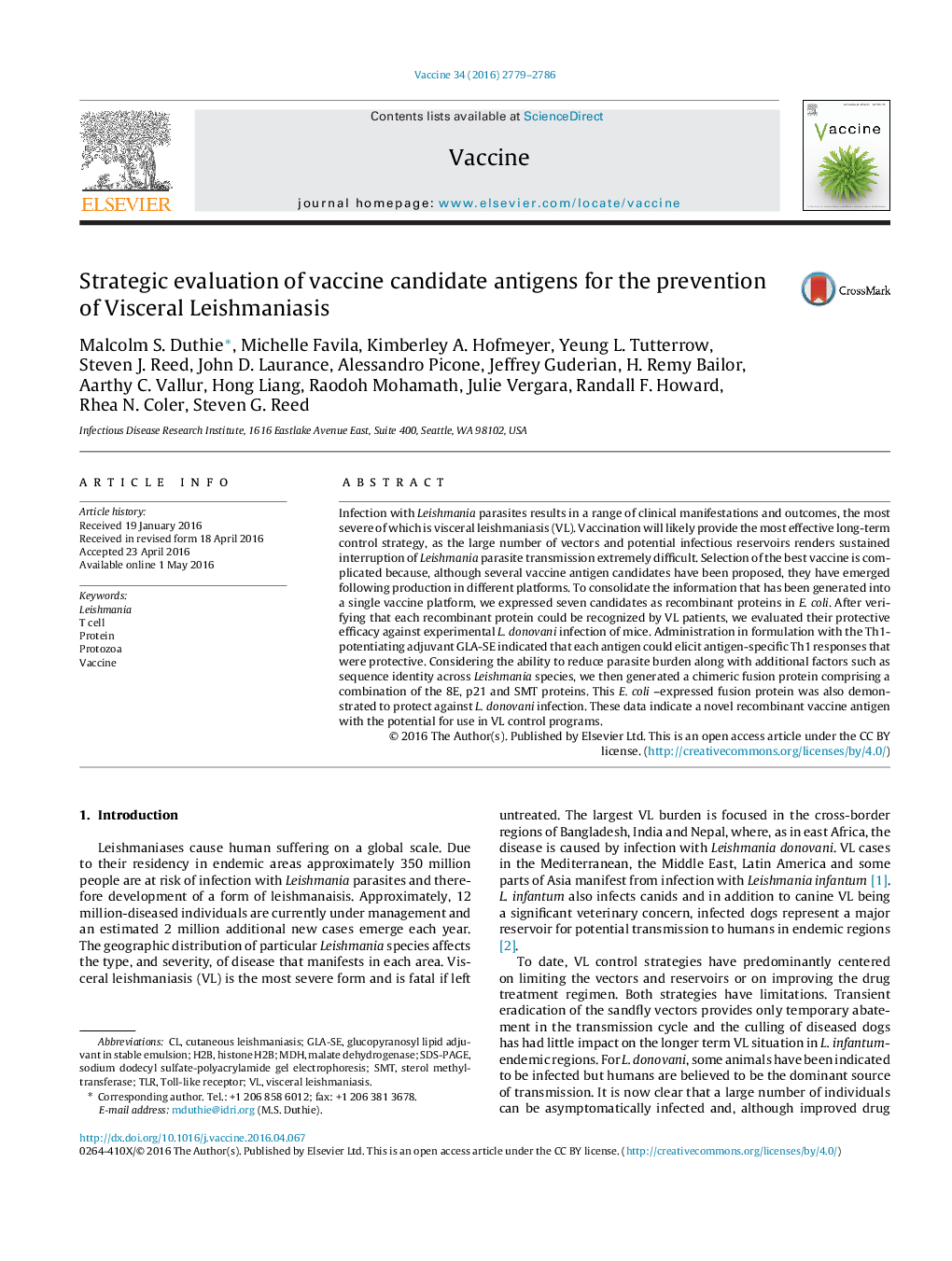| Article ID | Journal | Published Year | Pages | File Type |
|---|---|---|---|---|
| 10962663 | Vaccine | 2016 | 8 Pages |
Abstract
Infection with Leishmania parasites results in a range of clinical manifestations and outcomes, the most severe of which is visceral leishmaniasis (VL). Vaccination will likely provide the most effective long-term control strategy, as the large number of vectors and potential infectious reservoirs renders sustained interruption of Leishmania parasite transmission extremely difficult. Selection of the best vaccine is complicated because, although several vaccine antigen candidates have been proposed, they have emerged following production in different platforms. To consolidate the information that has been generated into a single vaccine platform, we expressed seven candidates as recombinant proteins in E. coli. After verifying that each recombinant protein could be recognized by VL patients, we evaluated their protective efficacy against experimental L. donovani infection of mice. Administration in formulation with the Th1-potentiating adjuvant GLA-SE indicated that each antigen could elicit antigen-specific Th1 responses that were protective. Considering the ability to reduce parasite burden along with additional factors such as sequence identity across Leishmania species, we then generated a chimeric fusion protein comprising a combination of the 8E, p21 and SMT proteins. This E. coli -expressed fusion protein was also demonstrated to protect against L. donovani infection. These data indicate a novel recombinant vaccine antigen with the potential for use in VL control programs.
Keywords
Related Topics
Life Sciences
Immunology and Microbiology
Immunology
Authors
Malcolm S. Duthie, Michelle Favila, Kimberley A. Hofmeyer, Yeung L. Tutterrow, Steven J. Reed, John D. Laurance, Alessandro Picone, Jeffrey Guderian, H. Remy Bailor, Aarthy C. Vallur, Hong Liang, Raodoh Mohamath, Julie Vergara, Randall F. Howard,
